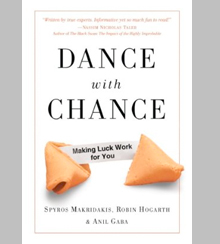There are a few proven ways to make sure you’ll end up in fiduciary hot water … follow these steps and you’re sure to find an auditor at your door.
DON’T worry about forwarding employee deferrals
IGNORE plan provisions – interpret the plan in any way you want … Oh – and be sure to treat some of the participants DIFFERENTLY, change the rules on a case-by-case basis.
OVERLOOK your responsibilities – why pay for plan fiduciary training or expert help? …
RARELY meet -- who needs a formal meeting schedule …?
RANDOMLY select plan service providers and investments… Select based on ARBITRARY criteria or outside relationships.
NEVER communicate openly with participants – the less they know, the less they can complain (or sue). Make sure they know nothing about the plan, the processes used and decisions made. …
NEGLECT service provider shortcomings – why measure performance vs. established benchmarks? …
DEVALUE your evaluation process – FORGET to establish objective performance measurement standards and NEVER report the results.
IGNORE deadlines to file governmental reports …
THROW ALL THE PLAN RECORDS IN A SHOEBOX AND IGNORE THEM! …Who needs a “Fiduciary Due Diligence” file containing all plan documents and records of decision making anyway?
But seriously, after almost three decades of reviewing and fixing retirement plans, we know the failure to adopt fundamental practices can result in regulatory intervention and potentially significant personal liability for plan fiduciaries. If you think your plan may be in trouble contact an expert for assistance to review and correct your plan governance procedures – before the IRS or DOL contacts you!
About the Author Robert Higgins is the lead consultant for the Fiduciary Services practice of Benefit Plans Plus, where he is responsible for assisting clients in defining and fulfilling their ERISA and investment fiduciary duties. He has published articles, made live and internet presentations to local, regional and national audiences. He has more than 28 years of experience in the qualified plan business with several major regional and national organizations. For more information contact Bob at 314.983.1358 or rhiggins@bpp401k.com.
About Benefit Plans Plus Benefit Plans Plus, LLC offers customized retirement plan design and administration, fiduciary compliance management and consulting services for retirement plans. Through unique offerings including the Fiduciary Health Check™ and the SBO 401k BPP serves nearly 750 retirement plans throughout the Midwest. Benefit Plans Plus holds the Centre for Fiduciary Excellence, LLC (CEFEX) recordkeeper certification for third party administrator services and the American Society of Pension Professionals and Actuaries (ASPPA) seal of service for provider excellence -- the top recognitions in the industry. BPP is a member of NIPA, ASPPA and ICEBS. In addition, the well credentialed team of retirement plan specialists averages at least 17 years of experience each. For more information about Benefit Plans Plus, a subsidiary of Brown Smith Wallace, LLC, visit http://www.bpp401k.com/ or call 314.983.1200.
Information provided in partnership with 401khelpcenter.com, LLC. 401khelpcenter.com, LLC is not the author of the material unless specifically noted. We do not endorse and disclaims any and all responsibility or liability for the accuracy, content, completeness, legality, or reliability of the material. THIS ARTICLE IS PROVIDED FOR INFORMATIONAL PURPOSES ONLY AND IS NOT INTENDED AS LEGAL, TAX OR INVESTMENT ADVICE.


![Reblog this post [with Zemanta]](http://img.zemanta.com/reblog_e.png?x-id=2f168115-bdb9-4c72-864c-f0b9ecc48ffc)




